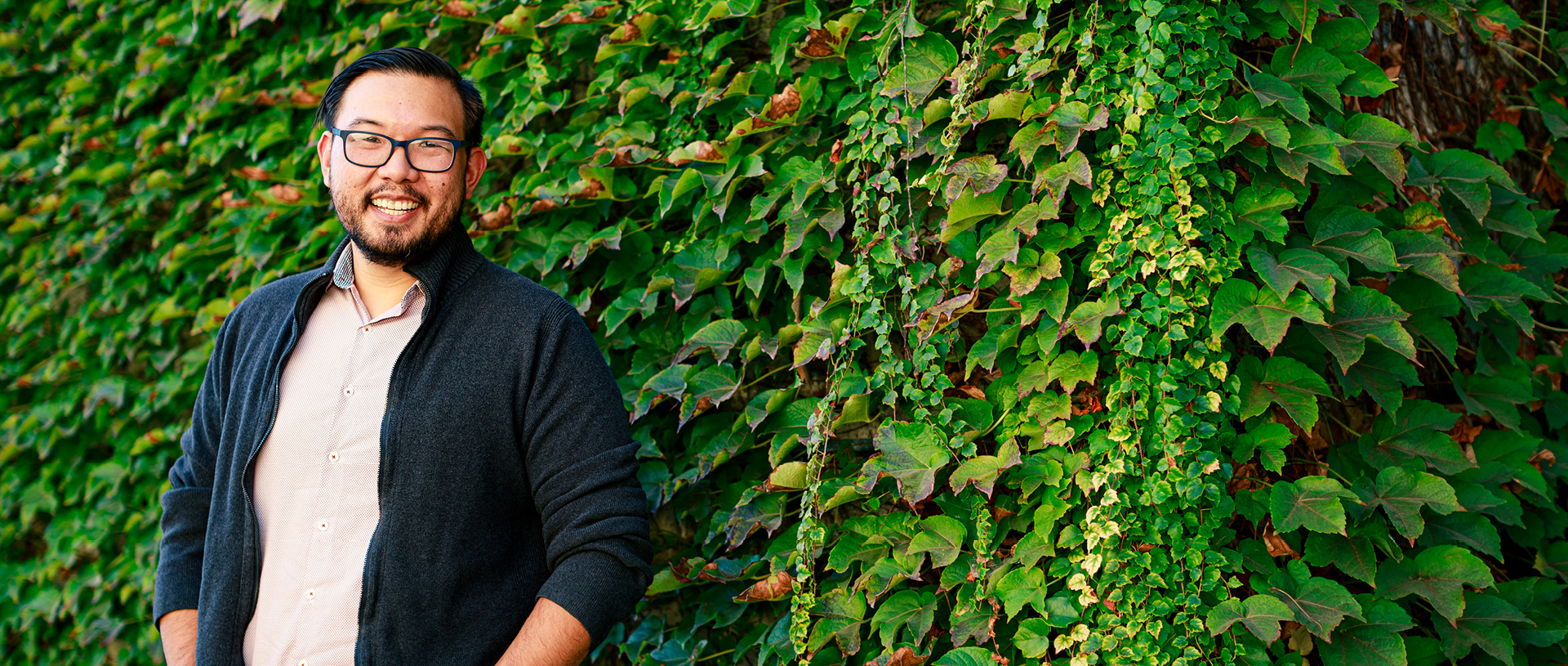
Jeff Liou’s (PhD ’17) journey of ministry began with a knock at the door. During his first year at the University of Michigan, student leaders from InterVarsity Christian Fellowship visited his dorm room and invited him to join a Bible study. It was something he’d been craving. Not having grown up in a Christian home but coming to faith in high school through a friend, Jeff knew he was hungry to learn. What he didn’t know then was how that invitation would set him on a path to becoming an ordained minister, an antiracism scholar, and a mentor to countless young people of color in the church.
After spending his undergraduate years involved with InterVarsity, he went on to become a staff member after graduation. His time with the Fellowship had a twofold impact on shaping his call to ministry: it directed his heart to ministering to and discipling young people, but it also taught him to recognize how the dynamics of race and ethnicity were significant in doing those things well.
“InterVarsity was a forerunner of race dialogue in campus ministry. There were lots of internal and external conversations,” Jeff says. Cultural experiences helped shape their communities, which showed itself in part through InterVarsity having intentional ethnic-specific ministries. The first Asian American staff member of InterVarsity’s Chinese Christian Fellowship, Jeff says this intentionality helped others feel more welcome than they otherwise may have in a more culturally White space.
Jeff learned a great deal in those years, though he eventually came to a point of realizing how much more there was to learn. He wanted the sort of theological training that would sustain him through a long-term ministry career. And he especially wanted to learn more about race and ethnicity in the church, because despite—and maybe through—the dialogue he’d been part of at InterVarsity, he recognized how much further the church needed to go.
A memory from Jeff’s time at Michigan comes to mind for him: when an Asian friend of his committed suicide. It was an instance of the horrifying trend of particularly Asian and Asian American mental health issues that he’s watched haunt college campuses even today—something he hasn’t seen specifically addressed by Christians. “It affected me so profoundly that the church had failed to nurture him in his specific ethnic background and confront his mental health issues with culture-informed care,” he says. The church was ill-equipped then to minister in the necessary way; Jeff laments that not much has changed since.

Jerome Blanco (MDiv ’16) is a writer and social media strategist for FULLER studio
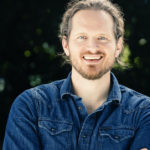
Nate Harrison is Director of Photography and Senior photographer. His personal work can be found at NateCHarrison.com
Jeff Liou’s (PhD ’17) journey of ministry began with a knock at the door. During his first year at the University of Michigan, student leaders from InterVarsity Christian Fellowship visited his dorm room and invited him to join a Bible study. It was something he’d been craving. Not having grown up in a Christian home but coming to faith in high school through a friend, Jeff knew he was hungry to learn. What he didn’t know then was how that invitation would set him on a path to becoming an ordained minister, an antiracism scholar, and a mentor to countless young people of color in the church.
After spending his undergraduate years involved with InterVarsity, he went on to become a staff member after graduation. His time with the Fellowship had a twofold impact on shaping his call to ministry: it directed his heart to ministering to and discipling young people, but it also taught him to recognize how the dynamics of race and ethnicity were significant in doing those things well.
“InterVarsity was a forerunner of race dialogue in campus ministry. There were lots of internal and external conversations,” Jeff says. Cultural experiences helped shape their communities, which showed itself in part through InterVarsity having intentional ethnic-specific ministries. The first Asian American staff member of InterVarsity’s Chinese Christian Fellowship, Jeff says this intentionality helped others feel more welcome than they otherwise may have in a more culturally White space.
Jeff learned a great deal in those years, though he eventually came to a point of realizing how much more there was to learn. He wanted the sort of theological training that would sustain him through a long-term ministry career. And he especially wanted to learn more about race and ethnicity in the church, because despite—and maybe through—the dialogue he’d been part of at InterVarsity, he recognized how much further the church needed to go.
A memory from Jeff’s time at Michigan comes to mind for him: when an Asian friend of his committed suicide. It was an instance of the horrifying trend of particularly Asian and Asian American mental health issues that he’s watched haunt college campuses even today—something he hasn’t seen specifically addressed by Christians. “It affected me so profoundly that the church had failed to nurture him in his specific ethnic background and confront his mental health issues with culture-informed care,” he says. The church was ill-equipped then to minister in the necessary way; Jeff laments that not much has changed since.
Jerome Blanco (MDiv ’16) is a writer and social media strategist for FULLER studio
Nate Harrison is Director of Photography and Senior photographer. His personal work can be found at NateCHarrison.com
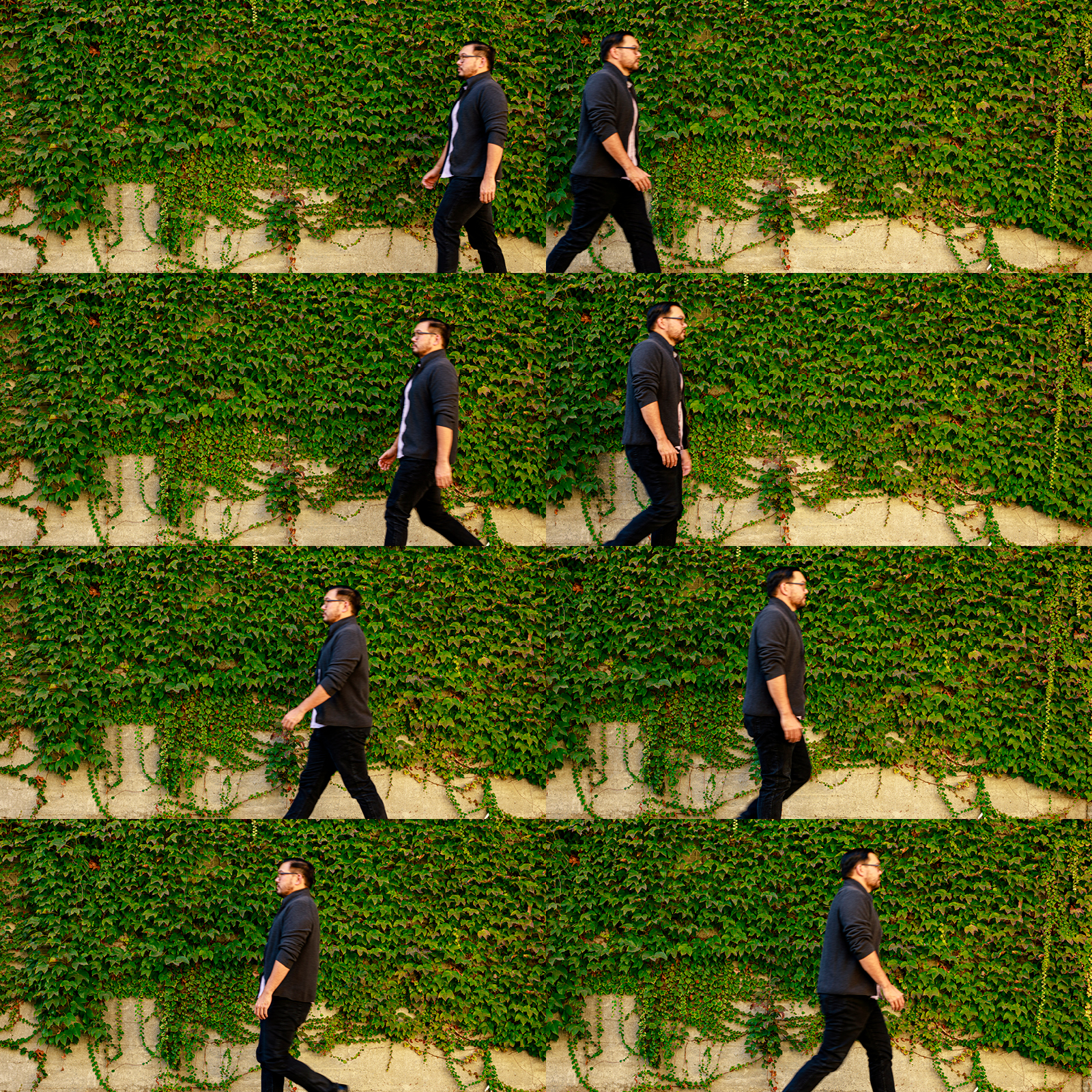

Keen on being a part of the church’s progress in this area, Jeff pursued an MDiv in Chicago, where he took a deep dive into biblical and theological studies, focusing his papers and research on topics of race and ethnicity whenever he could. Afterwards, he and his family moved to California to continue his education at Fuller. Jeff earned a PhD, studying with Richard Mouw, Hak Joon Lee, and Love Sechrest, while penning a dissertation that emphasized how crucial an “intentional race consciousness” is to the task of theology.
His season at Fuller was formative not only for what he learned inside the classroom but also for what he experienced outside of it. First, he explains, “I can’t think of a better place to study race and ethnicity than Los Angeles. I’ve learned so much about the dynamics of race and ethnicity in a diverse place.” Second, and more importantly, Jeff worked as a pastor for college students and young adults during his entire Fuller career. The theology he studied was put in constant conversation with the practical and personal elements of his life and ministry.
The job was at a large and multiethnic church, but he quickly understood—through what he saw in the church’s leadership, demographic trends, and culture—that it was a White space despite its diversity. The task before him was clear. If he was going to minister to young adults, he needed to “intentionally build a fellowship that was inclusive of people of color.” He explains, “What I ended up working to protect was the sense of belonging for people of color. It meant that I prioritized cultivating and mentoring them so that they could envision themselves belonging to this church for the long haul and envision themselves becoming leaders—because these things are so much more difficult for people of color.”
He says, “I had to be very intentional about helping people of color learn about power, learn to navigate power, learn to wield power, and learn to accept power, without replicating the ways in which power has been abused to their disadvantage. That was my entire mentoring ethos.”
All this was easier said than done. It was one thing to have theorized and written papers about racial justice, but it was another thing to be involved in the lives of real young adults, who struggled with problems like documentation and many other race-related issues. Jeff had to learn to be a pastor who walked alongside and hurt with these young adults. He needed a sustained intentionality in order to minister in a way where he didn’t simply “talk the talk.”
The work he did made a world of difference to that young adult group. While many came and went from the church group through the years, a handful became committed members. Jonathan, who was part of the fellowship from the beginning, says, “Jeff made it a safe space to lament, freely discuss race, and be challenged in faith.” And Melody, who’d grown up in the church, shares that Jeff’s leadership “empowered me as a young adult and a woman of color to engage myself for the kingdom and to lead others to do so too.”
While Jeff has since moved on from that role, he maintains a relationship with young adults like Jonathan and Melody, remaining invested in their lives as a mentor and also a friend. The importance of walking alongside people like them stretches beyond the limits of a job for Jeff. He’s committed for the long haul.
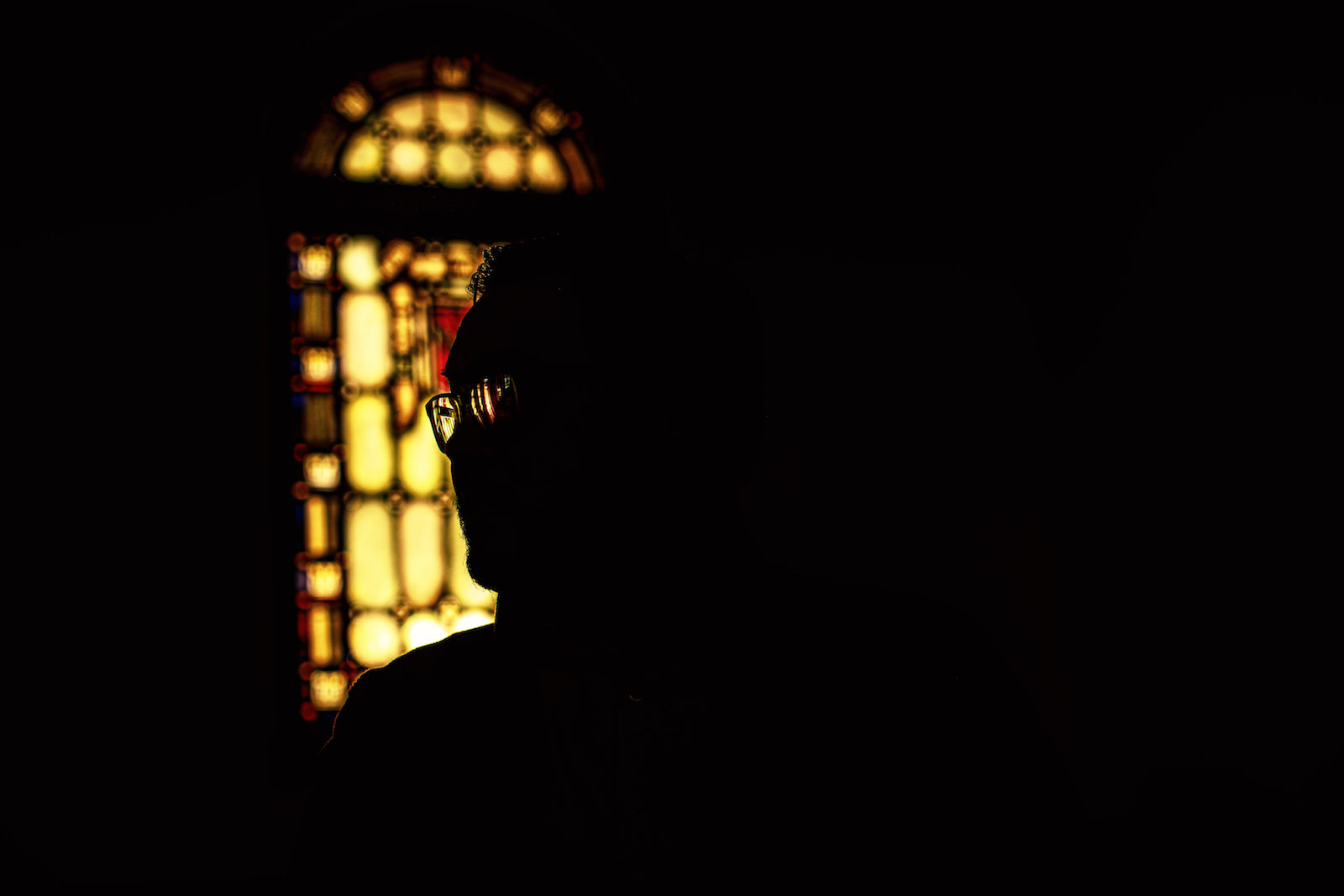

In the time since, Jeff has kept busy in ministry—teaching as an adjunct professor at Fuller and spending two years as the Protestant chaplain at the Claremont colleges. Now, he has returned to InterVarsity, serving as the organization’s director of theological formation, where he oversees the foundational theological training for the college ministry’s staff nationwide. And while this role isn’t specifically dedicated to issues of race, he reiterates the importance race consciousness plays in the theological method and development, which is less about formulaic questions and answers as it is about humans inhabiting specific cultures and specific bodies. On top of all that, Jeff helped found a budding organization called the Asian American Christian Collaborative, which seeks to serve and empower Asian Americans in the church. Serving as their antiracism resource specialist, Jeff played a key role in penning the organization’s statement against anti-Asian racism, which has garnered over 10,000 signatures.
With the breadth of his experience, Jeff says the task of racial justice in the church remains immense. “Many churches and Christian institutions,” he says, “aren’t committed to examining the DNA of their training.” He describes a recent experience when a fellow member of his church posted multiple racist comments on a post he’d made on Facebook. After a couple of the church’s pastors finally addressed this person, they also reached out to Jeff, telling him how sorry they were about what had happened and asking what they could do to help. But when Jeff offered suggestions that might improve experiences of people of color like him in the church—such as providing training for church staff to engage with racism—he was only met with silence, and the conversation came to an end.
This consistent resistance to systemic change taxes Christians of color, and Jeff notes how this is especially so for younger people of color in the church. The emerging generation’s tolerance continues to be worn thin by the church’s apathy to their experiences. Jeff explains that there is a widespread need for confession—for the church to honestly engage with its history and systems of racial injustice. Young adults demand it.
While the work is daunting and the climb toward justice remains steep, Jeff has hope. He thinks about the faithfulness that he has witnessed in Christian communities who do repent of the church’s institutional sin and put in the work toward change. He thinks of spaces in the church where young people of color are allowed to belong and to thrive. He thinks of the young adults of color he has walked alongside, like Jonathan and Melody, and all that they offer to the kingdom.
“Hope is the size of a mustard seed,” he says. “Local faithfulness is slow, not flashy, and hard to market. But if there’s any hope, it’s to be found in small communities where people are truly known and people are transformed.” Jeff has been blessed to be a part of these communities and instrumental in helping many of them sprout out of tough ground. He holds hope for the future and continues to get to work, planting seed after seed.
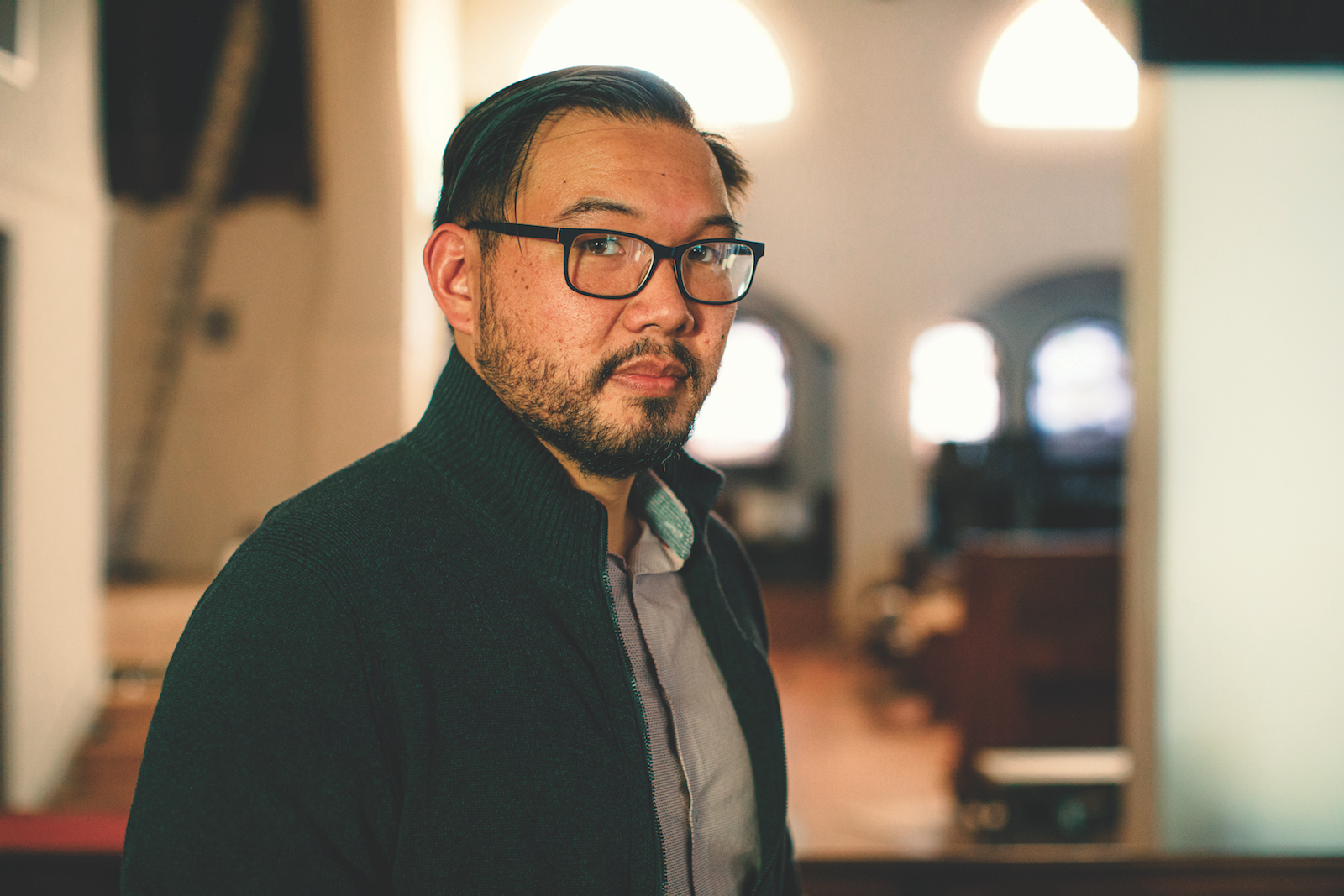
Shaped by her own family’s story of migration, Rosa Cándida Ramírez faithfully serves her local immigrant community